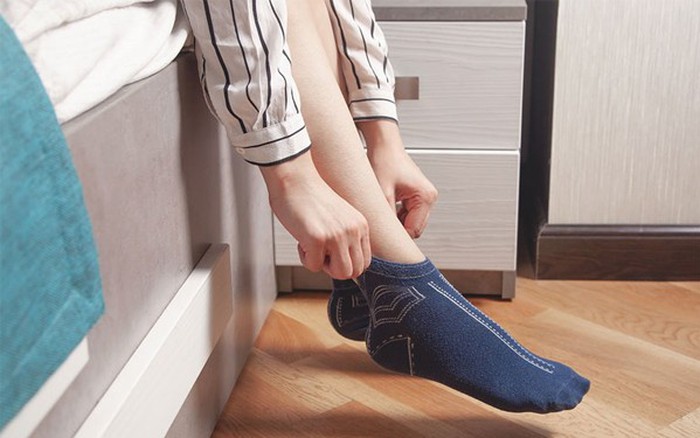🧦 Should You Sleep With Socks On or Off?

Here’s What You Should Know:
✅ Benefits of Sleeping with Socks On:
- Helps You Fall Asleep Faster
Wearing socks helps regulate your body temperature. When your feet are warm, the blood vessels dilate (open up), which sends a signal to your brain that it’s time to sleep.
➡️ Result: You fall asleep faster and more easily. - Improves Sleep Quality
Warm feet contribute to stable body temperature throughout the night, reducing sleep disturbances caused by feeling cold.
➡️ This can result in deeper, more restful sleep. - Prevents Cold Feet and Night Waking
If your feet get cold during the night, it can wake you up or make it harder to stay asleep. Socks act as a simple fix.
➡️ Ideal for people with poor circulation or cold environments. - May Help with Hot Flashes
For women experiencing menopause, warming the feet can reduce the intensity of hot flashes by redistributing heat in the body.
➡️ Calms temperature spikes that interrupt sleep. - Reduces Risk of Raynaud’s Attacks
For people with Raynaud’s disease (a condition that limits blood flow to fingers and toes), socks can help prevent an episode during the night.
➡️ Keeps toes warm and prevents painful cold attacks.
❌ When You Shouldn’t Sleep with Socks:
- If your socks are too tight: They can reduce circulation instead of helping it.
- If they make your feet sweaty: This can lead to fungal infections or skin irritation.
- If you’re uncomfortable: Sleep quality depends on comfort — if socks bother you, it’s okay to go without.
👣 Tips for Sleeping with Socks:
- Use clean, breathable, and lightweight socks (like cotton or wool).
- Avoid tight elastic bands.
- Don’t wear compression socks unless prescribed by a doctor.
🌙 Bottom Line:
Sleeping with socks can improve circulation, help you fall asleep faster, and keep you warm throughout the night.
But comfort is key — if you sleep better without them, that’s okay too!